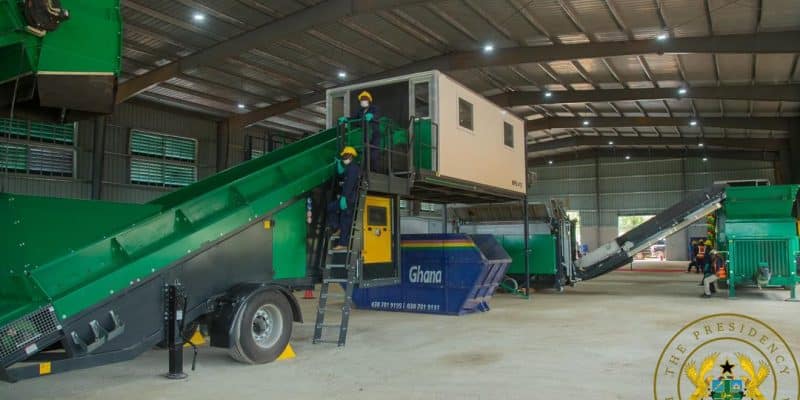The President of the Republic of Ghana, Nana Akufo-Addo is inaugurating a solid waste recycling and composting plant in Damongo, in the Savannah region of Ghana. The facility, which was built by the Jospong Group, is capable of handling about 400 tonnes of waste per day.
The new solid waste recycling and composting plant was commissioned on 24 August 2022, almost two years after construction began. The facility in Damongo, a town in the Savannah region of Ghana, recycles about 400 tonnes of waste per day.
The biodegradable material is turned into fertiliser for farmers, who will receive up to 200 tonnes of fertiliser per day. The 56 tonnes of plastic waste collected daily at Damongo are supplied to industries that add raw material to make equipment such as chairs, buckets and bowls.
The result of a public-private partnership
The aim is to reduce solid waste pollution in Ghana through “safe” collection and disposal. The Ghanaian government entrusted the project to the Jospong Group, whose subsidiary Zoomlion is responsible for public waste management in this West African country. The entire project cost nearly 20 million dollars.
Read also –
The project, which is being completed in Damongo, will also create about 500 direct jobs for young people in the waste sector, thereby reducing the unemployment rate. According to the Ghanaian authorities, this is one of 16 solid waste recycling and composting plants being developed in the country. Currently, Ghanaians produce 14,000 tonnes of rubbish a day, two-thirds of which ends up in sewers or is burnt in landfills, according to the authorities.
Inès Magoum






